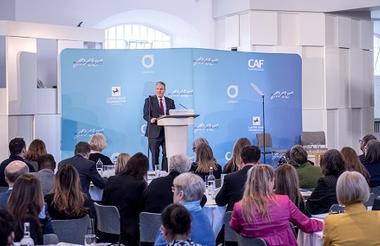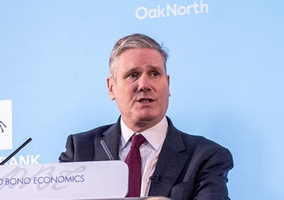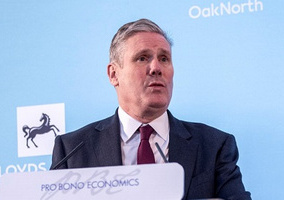Hearing the leader of the opposition come out and defend charities on Monday was music to my ears. But the fact remains, we shouldn’t be in a position where the role of such an essential part of society should need defending from the government of the day.
To be describing the charity sector as “woke” is self-defeating. If woke means being alive to the most pressing injustices of the day, of course we are woke. If woke means calling out what needs to change in our society to level up those most vulnerable, to fashion a more compassionate and inclusive society, then we are proudly woke.
Charities seem to have become collateral damage in a culture war that has narrowed to the point where politicians have had to distinguish themselves as to whether they are for or against us. But we have been a critical part of the democratic infrastructure for centuries and we bring vast experience and expertise that can help to guide policy and reshape our society for the better.
Our collective strength is vital
The RSPCA this year celebrates its 200th year – founded in a coffee shop by a group of, frankly, revolutionaries – including the anti-slavery campaigner William Wilberforce – determined to change the world. Our charity predates the police, it inspired the NSPCC to offer similar protection for children, it sparked an animal welfare movement which spread around the globe and has made the protection of animals an accepted and welcome part of our society. In short, we’ve changed lives – both animals and people.
But it is not just individual charities but our collective strength that is vital at this critical stage in our history. The issues we face are huge and impact all areas of our lives and world.
Climate change, for example, means tackling industry, our food system, inequality, and, yes, animal welfare, and the charity sector brings a wealth of experience, from working in communities and at national and international levels. Homelessness is not just a housing issue, it spans poverty, mental health, physical health, inequalities, and yes, even animal welfare when people face a stark choice of finding somewhere to live or losing a much-loved pet.
And we have a history of pulling communities, business and government with us. Look at the immense efforts of mental health charities who have put this vital issue on the agenda and helped us all understand what many experts have understood for years – that mental health is as important as physical health. Look at dementia, the critical work of dementia charities to raise the profile of this often misunderstood and ignored condition that led David Cameron to adopt it as a key mission during his term in office. And look at the RSPCA, more than 400 laws changed in 200 years, bringing unimaginable protections to animals in homes, in the wild, on farms, in labs and in entertainment.
Rebuilt trust
We reach into communities around the country, while seeing the bigger picture. We have worked hard to rebuild trust in the sector and it’s paying dividends – we are seeing trust grow at a time when many of our democratic institutions are regarded with suspicion and we are all battling fake news and competing “truths”.
In so many cases we are here to meet the unmet or poorly met needs of society, providing a safety net that has frayed and torn in many areas of our society. We are part of the solution. And Keir Starmer is right: we need a seat at the table.
Related Articles











